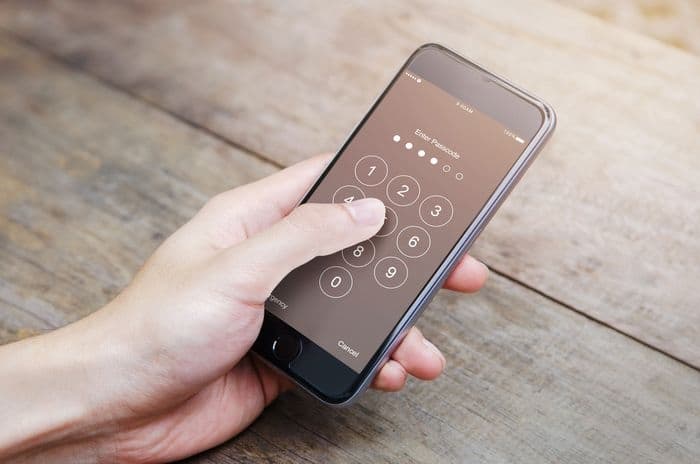Home > Mobile > News > Fifth of UK adults only access Internet with smartphone
Fifth of UK adults only access Internet with smartphone
Report by Mobile UK highlights as many as 21% of UK adults now only access the Internet by using a smartphone.
The Exclusion to Inclusion report looks at how mobile connectivity is growing in importance and how it can reduce digital exclusion.
The report highlights how 21% of UK adults are only going online by using a smartphone, and that 1.5 million households only have access to a mobile internet connection.
Mobile UK want the Government to update their digital inclusion strategy, as well as improve regulation and incentivise investment, as the market is currently too challenging.

Digital inclusion
Digital inclusion has grown as an issue in the cost of living crisis. In May 2023, Ofcom research highlighted as many as one in three households were struggling to pay for their broadband or mobile service.
The regulator found as many as 234,000 households had disconnected entirely due to affordability, and there are around 4.2 million adults who have never used the internet or have not been online in the last three months, according to the Office for National Statistics (ONS).
Yet, as the Mobile UK report points out, affordability is only one cause of digital exclusion, with many not going online because they simply don't have access, or they lack the skills to do so.
Investment in mobile
Ofcom's latest Connected Nations report, published in Spring 2023, found around 68,000 premises still can't access the Internet with speeds of at least 10Mb per second through either fixed line broadband or mobile.
And while the Government plans to roll out gigabit-capable broadband connections to 99% of the UK by 2030, it's already excepted that mobile and other wireless technologies will be needed for coverage in excess of 82% of premises.
A public investment of £7 million was recently announced to test out ways to improve rural broadband and reach the remaining parts of the UK still without decent Internet access.
Yet despite this addition to the £5 billion Project Gigabit investment, the importance of private investment in securing the future of mobile was underlined by Ofcom when they described Three and Vodafone as being "sub-scale" and lacking the viability to continue in the investment needed to rollout 5G.
The call from Mobile UK to further enable and incentivise investment in the Exclusion to Inclusion report comes at a time when Three and Vodafone are awaiting approval on a merger that they say will help them "gain the necessary scale to be able to accelerate the rollout of full 5G in the UK and expand broadband connectivity to rural communities and small businesses".
Social initiatives
In addition to improving the landscape for investment in mobile infrastructure and connectivity, the Exclusion to Inclusion report also highlights all the ways the network operators are working on a community level to help improve digital inclusion.
There has been an increase in the number of discounted and social tariffs for mobile in the past year, with VOXI from Vodafone's For Now plan relaunching in April 2022, after it was initially used to help people during the pandemic in late 2020.
EE also launched a social tariff Basics in November 2022, and Three launched their social tariff via their Smarty brand in February 2023.
These social tariffs offer connectivity at a reduced price for people on means tested benefits who are at a higher risk of affordability issues.
Virgin Media O2 have also been offering completely free data plans through the Good Things Foundation's National Databank and also in O2 high street stores since the end of 2022.
Recommendations
The Exclusion to Inclusion report makes five recommendations aimed at central policy changes:
- Creating a new digital inclusion strategy, as the last strategy was published in 2014, nearly ten years ago
- Enabling investment to ensure connectivity is kept affordable, Mobile UK highlight the pressing need for incentivised investment and improved regulation as the current market is failing to attract the investment needed and networks are seeing a declining revenue per user
- Promoting accessible and mobile-friendly websites as standard, with 71% of smartphone users reporting difficulty completing forms on a mobile compared to a laptop
- Using public services to promote digital inclusion
- Central funding for dedicated Digital Champions
Gareth Elliott, Mobile UK Director of Policy and Communications, said, "Mobile connectivity is already fundamental to our daily lives yet its importance in the debate about digital inclusion is less understood. In this report, we highlight the growing reliance on mobile, particularly among vulnerable people, the barriers people face, and call on the government to address these issues with clear policy direction by updating the national inclusion strategy to tackle the digital divide.".

We are independent of all of the products and services we compare.

We order our comparison tables by price or feature and never by referral revenue.

We donate at least 5% of our profits to charity, and we have a climate positive workforce.
Get insider tips and the latest offers in our newsletter
Latest News

05 December 2024
Merger of Vodafone and Three UK approved
19 August 2024
New O2 Essential Plan for those on social benefits
06 August 2024
Three UK moves to pounds and pence annual price rises


Comments